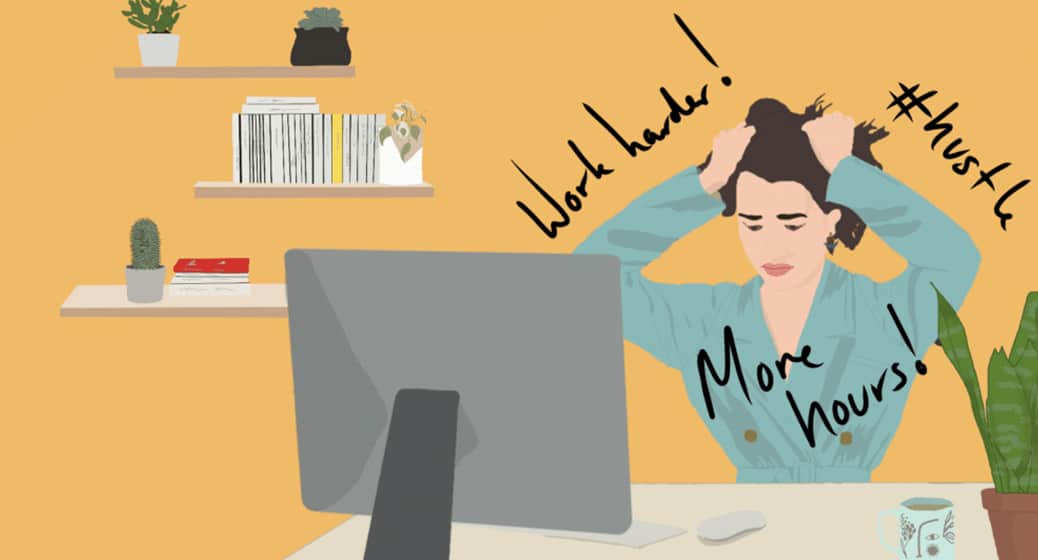I recently read an article describing psychotherapy as “hustle culture.” Maybe you read it too. Although I think many of us are familiar with “hustle culture,” I’m not sure we’ve thought of our own profession, being psychotherapists, as a hustle in and of itself. But, my oh my, does that make sense!
Let’s consider this from a few points. First, fee-for-service work. As psychotherapists, our income is tied to the number of clients we see for face-to-face sessions. This is true if you work for a group private practice, even if you don’t own and operate your own practice. When all of your dollars are a result of you being present and providing a face-to-face service, there are limits…or else we’re hustlin’! It simply isn’t sustainable to see and treat 40…or 30…or even 20 clients per week indefinitely. There is just too much wear and tear on the clinician. So what do we do? We know we all have had periods, and maybe currently still in that space, where we see too many clients for our own good. We are especially feeling it after years without rate increases from commercial or federally funded insurance plans and a 3-year pandemic. We see more clients to keep up with rising costs of doing business and to keep up with inflation for things in our personal lives. Constantly hustlin’.
Next, side jobs and gigs. I don’t know may therapists that don’t have a side gig or part-time job. The fee-for-service model and the compassion fatigue clinicians face means we can’t see the number of clients we need to make a livable income, so we diversify and find other ways to increase income. This may look like offering groups, speaking engagements, coaching and consulting services, designing products for sale, writing books, creating journals, conducting training or continuing education courses, writing articles. If you’re doing one of these extra things, it’s a lot of work! If you’re doing more than one of these things, well we’re still hustlin’, aren’t we?
Finally, the undervalue we experience as a profession. This shows up in several ways. The first way is reimbursement for psychotherapy services from insurance companies. Let’s be honest here. Rates are too low for our level of education and ongoing training required to ethically and appropriately provide healthcare treatment to people as research offers more insights and information as years pass. And then there’s the issue of not getting regular rate increases from these insurance companies, in fact, some years they just reduce reimbursement for no particular good reason. And then, there is the massive issue of big insurance companies just simply refusing to pay rightfully for services already rendered. This has happened so many times with solo and group private practices, with hospital systems, with other health clinics, but most egregiously this occurs with psychotherapy services. So here we are hustlin’ trying to track down and demand insurance pay us what is rightfully owed to us. You tell me what other profession has to do that? On a regular basis? The hustle never ends.
Slowing down is necessary. This became true for me as the pandemic waned on for 3 years and I experienced a few of my own major health conditions to include an emergency appendectomy at 34 and a severe case of shingles with nerve pain lasting a year at 36. After a year of trying to slow down, and more realistically, 6 months of actively practicing slowing down, it FEELS better in my body… but not in my pocket. My income is suffering because I’ve chosen to reduce my caseload. However, my chronic pain has improved a bit from not sitting as much every day, and having more time to walk and stretch. I can be a bit more present with my family at the end of the day. I can prioritize my needs in better ways.
If you’re reading this, I want you to know that it’s okay to slow down. I don’t know what all the answers are for our income and I hope things within healthcare, health insurance, and the general public will improve. However, your health, your time with the people you want to be with, and ultimately your life is not worth the hustle, even if that’s how the current system for providing psychotherapy services works. Hustle is not a status symbol. Hustle is likely an indicator of poor boundaries and will ultimately lead to poor health. We cannot sacrifice ourselves just because the system and the culture will allow us to do so. Psychotherapy might be a hustle, but psychotherapists do not have to be hustlers.
You can read more about hustle culture with this article.
Keep Reading
Want more? Here are some other blog posts you might be interested in.








